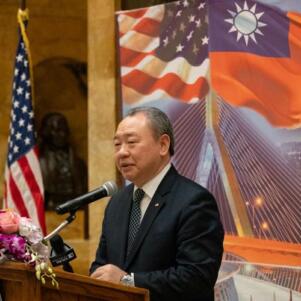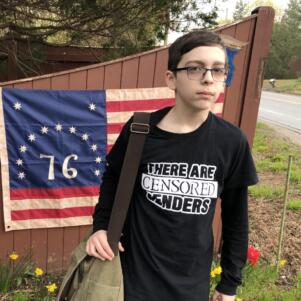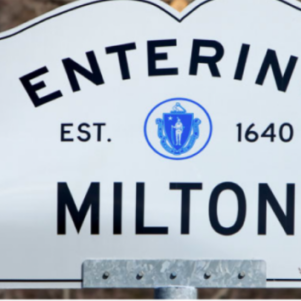Let Them Eat Cake? U.S. Supreme Court To Hear Same-Sex Couple Wedding Cake Case
By Evan Lips | June 26, 2017, 22:48 EDT
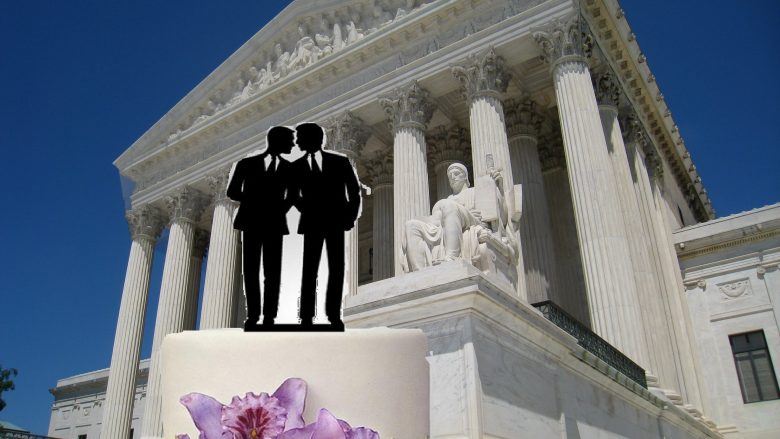
The U.S. Supreme Court announced Monday it will weigh in on a case with Bay State ties that deals with whether a Colorado baker acted within his constitutional rights when he refused to sell a wedding cake to a same-sex civilly married couple.
Before David Mullins and Charlie Craig tied the knot in Massachusetts in 2012, the couple stopped by the Masterpiece Cakeshop, located in a Denver suburb, looking to buy a cake for their wedding reception from owner Jack Phillips. Phillips declined, citing his religious beliefs. The couple lodged a complaint with the state, citing Colorado’s public accommodations law, a statute that bars businesses from practicing discrimination.
Mullins and Craig had planned to marry in Massachusetts but celebrate in Colorado, as the Centennial State did not recognize same-sex marriage until 2014.
The complaint led to a lawsuit, later decided by the Colorado Civil Rights Commission, in favor of Mullins and Craig, and not only stipulated that Phillips must bake the couple a wedding cake, but must also that his company must “change its company policies, provide ‘comprehensive staff training’ regarding public accommodations discrimination, and provide quarterly reports for the next two years regarding steps it has taken to come into compliance and whether it has turned away any prospective customers,” according to the American Civil Liberties Union.
Phillips, who lost his bid to overturn the ruling after the Colorado Court of Appeals upheld the commission’s decision, tried to appeal to the Colorado Supreme Court.
The state’s highest court refused to take up Phillips’s appeal, while Phillips elected to refuse to bake wedding cakes for any customers, regardless of sexual orientation.
Now, the nation’s highest court will consider Phillips’s case, against the wishes of the American Civil Liberties Union and the Colorado Civil Rights Commission.
The decision to weigh in on Phillips’s appeal comes three years after Supreme Court justices passed on a request to rule on a New Mexico Supreme Court decision which found that a photographer broke a state civil rights law when she refused to shoot a lesbian couple’s exchanging of vows.
While the Supreme Court’s landmark Obergefell v. Hodges decision removed state bans on same-sex marriage, the current case, according to SCOTUSblog, seeks to determine “whether applying Colorado’s public accommodations law to compel the petitioner to create expression that violates his sincerely held religious beliefs about marriage violates the free speech or free exercise clauses of the First Amendment.”
Even though Obergefell v. Hodges has settled the same-sex marriage issue for now, one prominent mainstream news outlet may have missed that memo:
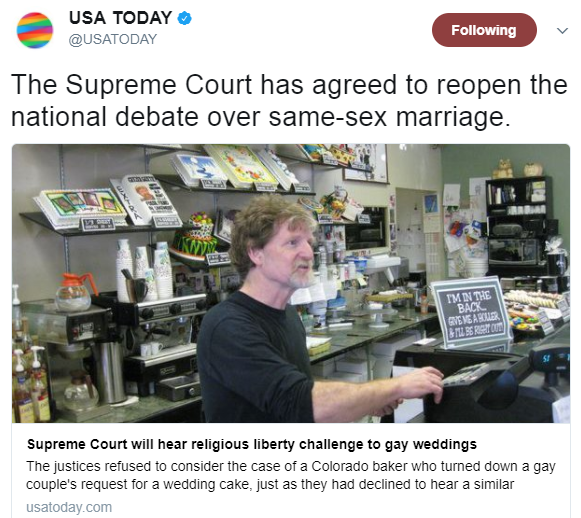
Last November, Craig and Mullins, with the help of the ACLU, petitioned to keep the Supreme Court from hearing the case. The couple claimed in their petition that the Colorado Anti-Discrimination Act “regulates conduct, not speech,” and noted that the Supreme Court has previously “made clear that the right to the free exercise of religion does not include a right to disobey neutral and generally applicable laws, including non-discrimination laws.”
Phillips responded by arguing that his cake-making constitutes a form of “custom artistic expression” and claimed that “speech compulsion is the problem, not the solution.”
“[Craig and Mullins’s] troubling reply is that it does not matter whether Phillips’s ‘custom wedding cakes [are] a form of pure speech,’ the state is free to compel him to create regardless, or — at the very least — the state may compel Phillips to engage in artistic expression that lacks any particular ‘message or symbol’ the state views as communicating an ‘explicit, unmistakable, offensive message’,” Phillips stated in his response, drafted with the assistance of the Alliance Defending Freedom, a conservative Christian nonprofit organization. “The former position would entomb the compelled speech doctrine altogether, while the latter would allow the government to punish unpopular viewpoints at will.”
Alliance Defending Freedom lauded the Supreme Court’s decision.
“We are supposed to live in a country where all citizens are free to exercise their constitutionally protected freedoms,” the organization posted on its website’s blog Monday, noting that since challenging the state of Colorado, Phillips has been the subject of death threats and harassment. “This includes not only artistic freedom, but the freedom to live and work according to one’s beliefs without punishment from the government.”
The ACLU, meanwhile, has maintained that the case “has always been about more than a cake.”
Mullins, in a statement posted to the ACLU’s website as part of coverage of the case, said “businesses should not be allowed to violate the law and discriminate against us because of who we are and who we love.”
Craig added that the couple is “disappointed that the courts continue debating the simple question of whether LGBT people deserve to be treated like everyone else.”
“We hope that our case helps ensure that no one has to experience being turned away simply because of who they are,” Craig stated.

